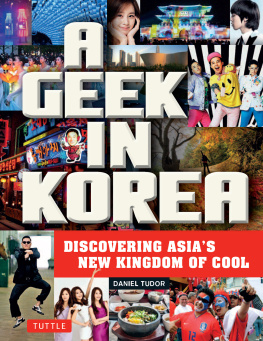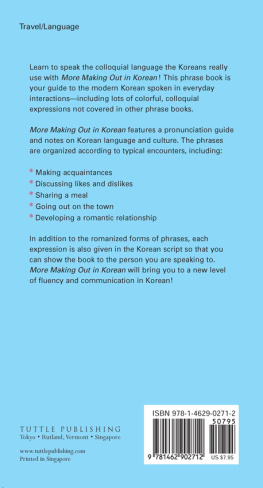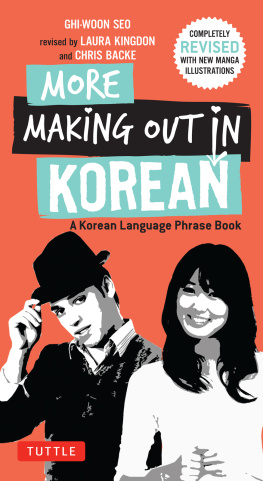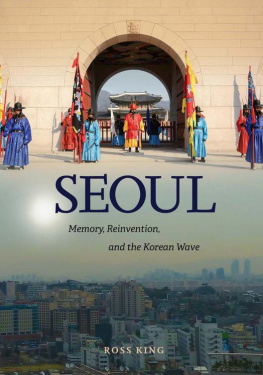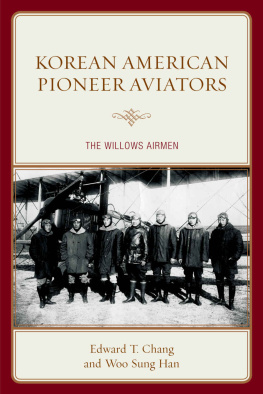PREFACE
This book examines the collective memory of the Korean War through five discrete memory sites in both the United States and South Korea. These include U.S. media coverage of the No Gun Ri killings, female survivors recollections of No Gun Ri, the PBS documentary Battle for Korea, the Utah Korean War Memorial, and the statue of General Douglas MacArthur in South Korea. In these active sites of memory, counter-memories of the war have recently clashed with official, state-sanctioned memories. Through analysis of these five sites, Embattled Memories details the ways in which diverse narratives of the Korean War compete for hegemony in our acts of remembering.
I am part of the postwar generation of the Korean Peninsula. I did not witness the Korean War, but I grew up with copious memories of it. My upbringing in the Jeolla Province of South Korea, where harsh struggles between the right- and left-wing factions of the political force took place immediately before and during the Korean War, exposed me to disturbing memories of that time. Moreover, my college major of Korean history at Korea University in Seoul made me aware not only of conflicting accounts of the war that were a subject of debate among historians, but also of dogmatic narratives that existed in the mainstream discourse of the Korean War. I sensed a fissure between how we remember the Korean War, on the one hand, and how we have been socialized to remember the Korean War, on the other. Later, my studies of mass media at Temple University in Philadelphia intrigued me and got me thinking about the dynamic roles that media have played in creating this fissure, as well as about the gaps that have been produced in remembering the war. Now, as a college professor at the University of Utah in Salt Lake City, I try not to miss any opportunity to talk about the Korean War with my U.S. students, whose upbringing was different from my own and whose memories of the Korean War are extremely tenuous despite the fact that this war consumed more than thirty-five thousand lives from their grandparents generation. Through these different journeys that I have taken, memories about the Korean War have come back to me joined with the notions of disjuncture, contradiction, and at times incommunicability.
Perhaps I first sensed such a complex texture of memories when I considered my familys remembrances of our grandfathers death. My grandmother Chung Kisoon, whose oral testimonies constitute the major part of the narrative of my family heritage, told us that our grandfather Choi Youngbum was the only Korean who had received an award for being an outstanding student in Jeolla Province during the Japanese occupation. He was an open-minded man who enjoyed playing the violin, a foreign novelty to his generation. He also provided me with a proud lineage: he was a descendant of Choi Hang, one of the renowned scholars who worked on creating the Korean alphabet during the Choson Dynasty (13921910). I remember gazing at the handsome face of my grandfather in a framed photograph that was always standing on a table in my grandmothers bedroom. I never met him in person. My grandmother told us that he went missing near his hometown of Gurye right before the Korean War and was presumed to be dead.
As I grew up, however, I realized that my grandmother had intentionally left out some of the details of my grandfathers death. It was my mother who provided me with more of the previously hidden aspects of his passing. In fact, my grandfather had gone missing while he was hastily trying to escape from the South Korean police. These were the same police who had massacred countless young, educated Korean men, accusing them of being communists before and during the Korean War. Like my grandmother, many of the South Korean families who had lost their loved ones due to the inhumane treatment by U.S. alliedSouth Korean forces had maintained a silence. This disregard was in contrast to the treatment of families of victims of the North Korean troops, whose sufferings have been publicly recognized through numerous official commemorations of the Korean War.
My grandmother lost her husband when she was twenty-nine years old, and she never remarried. She passed away at the age of seventy-five. The patriarchal society of Confucianism called the loneliness of the widow the virtuous chastity of womankind. Until her last moment, my grandmothers favorite trip was going to the family mountain in Gurye, where she had made a symbolic grave for her missing husband. Although she had shared many memories with us, I often wonder how much she never told us. I solicit her stories only in my imagination. Had I asked, would she have had the desire to relate her untold memories? Had she wished to do so, would she have been capable of communicating these stories? Had she actually related them to me, could I in return have ever fathomed her complicated cache of memories? Since the time that I began to explore memories in the Korean War context, I have continuously been recalling images of my grandmother and the actions she chose to take in her life that I did not have a chance to hear directly from her but have come to imagine through the witnessing of others. I now realize that my grandfather and his loving wifemy dear grandmotherhave become the muses of this book.
Along with my muses, I also feel indebted to many people who have provided me with invaluable assistance in completing this book. There is no way that I can recall all the names of these gracious individuals. I can recognize only a few here. First of all, I am extremely grateful to the survivors of both civilians and veterans of the Korean War who have graciously shared their unspeakable memories with me, a stranger from the academic world. Without their persistent recollections of the past, without their courage to witness in the present, without their faith in goodness in the future, this book would not have existed. I thank my friends Go Heegap, Kim Chaemi, Choi Kwangsoon, and Rulon Wood, who have helped me greatly in my interviewing of these survivors.
Moreover, I have had the great privilege to work with remarkable individuals in various academic communities. I am grateful to Hal Himmelstein and Kathy Napoli at Brooklyn College for their thoughtful assistance as I took my initial steps on an academic journey on a foreign soil. I thank Carolyn Kitch at Temple University, who, with her exemplary academic performance, called my attention to memory studies in the first place. I also thank John A. Lent, Fabienne Darling-Wolf, Andrew Mendelson, and Jay Ruby at Temple University, who introduced me to critical knowledge on culture and communication. I thank my current colleagues at the University of Utah for their friendship and inspiration. I feel particularly honored to work closely with Mary Strine and Len Hawes, extraordinary scholars and mentors in our field.



